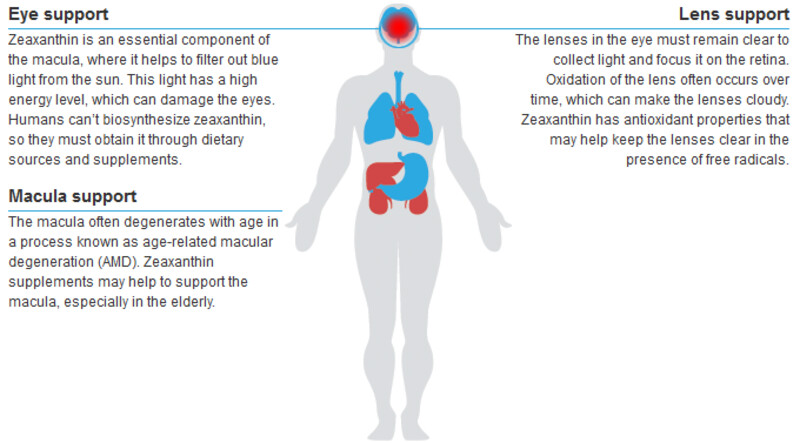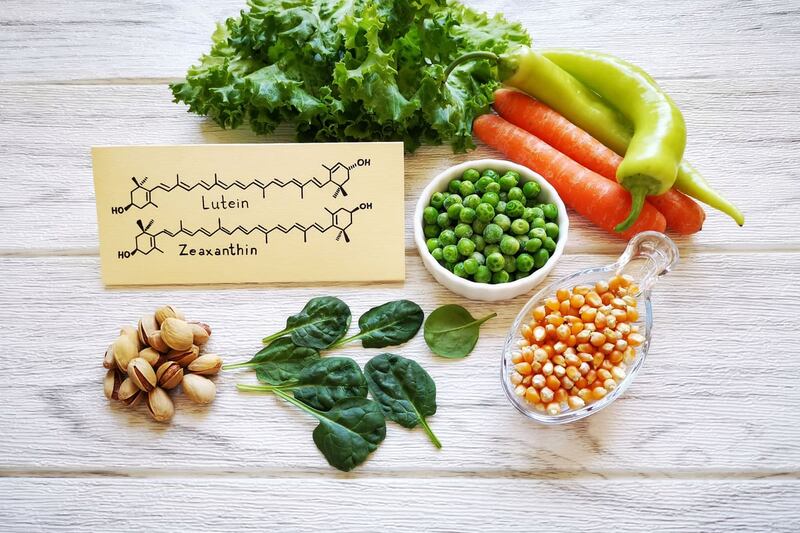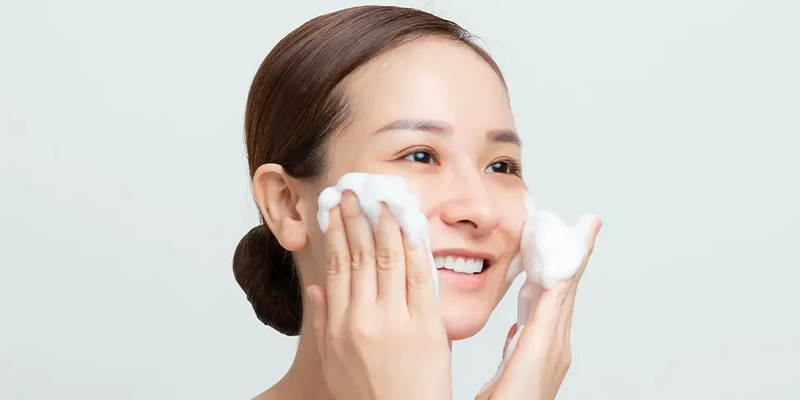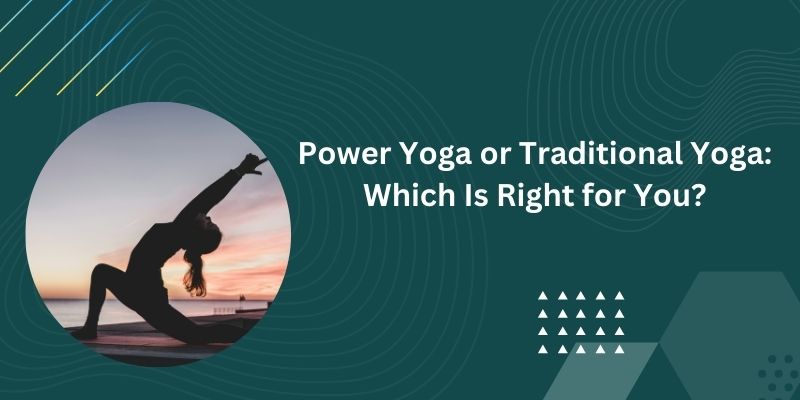Zeaxanthin, a type of carotenoid, is very important for keeping the eyes healthy. It especially helps to shield our eyes from harmful light and oxidative stress. We can find this antioxidant in many foods where it works with lutein to assist visual function. That's why we often see it as an ingredient in supplements for eye health. Knowing how valuable Zeaxanthin is may help people make better choices about their health and well-being. This piece of writing is going to examine the advantages and negative impacts of zeaxanthin, giving a comprehensive understanding of its effect on vision health.
Zeaxanthin is a natural carotenoid that gives many plants and foods their yellow color. It's famous for its function in the human retina, especially in the macula, where it assists in blocking damaging high-energy blue light and works as an antioxidant. Together with lutein, zeaxanthin is critical for keeping up the quality of our eye's central vision area called macula. This nutrient the body can't make. So, to keep your eyes healthy very important it is to eat superfoods with lots of zeaxanthin like green vegetables, corn, and eggs, or take extra vitamins that have this element.

Zeaxanthin is a carotenoid that has been much studied because of its role in eye health. The main advantage it provides is shielding the retina from oxidative harm and injury caused by light. Oxidative stress, which can cause c damage gradually, may be induced by blue light coming from digital screens and sunlight. Zeaxanthin assists by taking in the blue light, lessening its effect on the eyes and lowering the chances of eye.m disorders such as age-related macular degeneration (AMD). Researches reveal that increased amounts of zeaxanthin in the retina correspond to improved vision quality and a lower chance for AMD development.
Besides its safeguarding function, zeaxanthin might boost the complete sharpness of vision. It intensifies the capability of eyes to recognize slight details and contrast sensitivities which are crucial for tasks like reading, driving, and other everyday actions needing concentrated sight. In addition to this, it is hinted that zeaxanthin together with lutein preserves transparency in the eye lens that may decrease chances of suffering from cataracts.
Zeaxanthin, because it is important for keeping good sight, is a usual part of supplements that improve eye health. It's mostly found in products designed to help older people. Often these supplements are mixed with lutein, another type of carotenoid, and other essential nutrients such as vitamin C, vitamin E, and zinc. Mixing all these ingredients forms a strong mix which has the purpose to maintain macular healthiness and stop further development of vari.ous conditions related to eyesight.
For people not receiving enough zeaxanthin through their food, it's possible and efficient to get the needed amount from supplements. Suggested daily consumption of zeaxanthin may differ based on personal health requirements, but typically 2-10 mg every day is advised in supplemental form. Nevertheless, always reach out to a medical expert before starting any supplement regimen especially if you have certain health worries or issues.
Though zeaxanthin is normally seen as safe, knowing the possible side effects is crucial especially if taken in large quantities. The human body does not store extra carotenoids in big amounts and any excess usually gets expelled. However, taking very high doses of zeaxanthin could cause carotenemia, a state where due to too many carotenoids present in blood, skin turns yellowish. This condition is harmless and usually resolves once the intake of carotenoids is reduced.
At the moment, there are no serious health dangers linked with zeaxanthin supplements if consumed in suggested quantities. But people who are expecting a baby, breastfeeding, or have specific medical problems should always consult their healthcare professional before starting new supplements to their regime. Similar to any diet supplement, maintaining balance is crucial for preventing possible adverse outcomes.

Zeaxanthin and lutein are commonly talked about in conjunction due to their similar roles and advantages for eye health. These two carotenoids can be located abundantly in the retina, collaborating to shield the eyes. Their major distinction lies within their placement inside the retina, zeaxanthin has a higher concentration at the central macula while more lutein is observed in periphery areas. This complementary distribution helps ensure that the entire retina is protected from oxidative damage.
While they are similar in function, every carotenoid has its unique role which makes them all vital for good eye health. Research indicates that using supplements with both lutein and zeaxanthin offers more complete protection against blue light and oxidative stress than if you take only one nutrient alone. For this reason, many eye health supplements include both to ensure the highest level of protective effects.
With the increasing age of individuals, they become more prone to eye-related issues such as AMD and cataracts. The element known as Zeaxanthin is very crucial in lessening this likelihood by maintaining good health of the macular. In elderly people, a large part experiences vision impairment primarily due to AMD. Studies show that consuming lots of zeaxanthin along with lutein reduces the chances for an individual to get affected by this disorder.
Besides preventing AMD, some clues also say that zeaxanthin aids in safeguarding from cataracts. This is done by keeping the eyes lens clear of any obstructions. Cataract causes the eye lens to become unclear and can cause severe vision problems which may need surgery for correction later on. Zeaxanthin helps take care of your lenses by reducing oxidative harm caused to them thereby making it possible for delaying or avoiding the formation of a cataract.
Zeaxanthin is a very important nutrient for keeping good eyesight, particularly when people get older. It can be gotten from food or supplements and it helps to shield the eyes from harm caused by oxidation and light-related stress. Even though it's usually safe, individuals must always talk with a healthcare professional to find out the correct amount they should take and make sure that these supplements align well with their total health plan. Zeaxanthin, having well-known advantages for eye health and a very low risk of negative reactions, is a worthy inclusion in any routine for maintaining good eye condition.
When people understand the good points and possible dangers of zeaxanthin, they can choose wisely to help their eyesight and general health.










